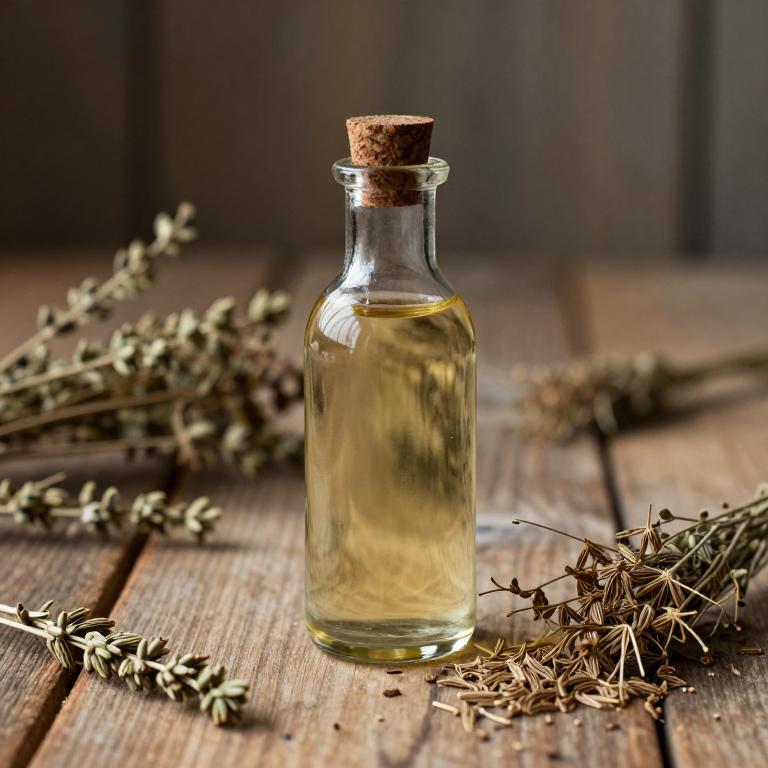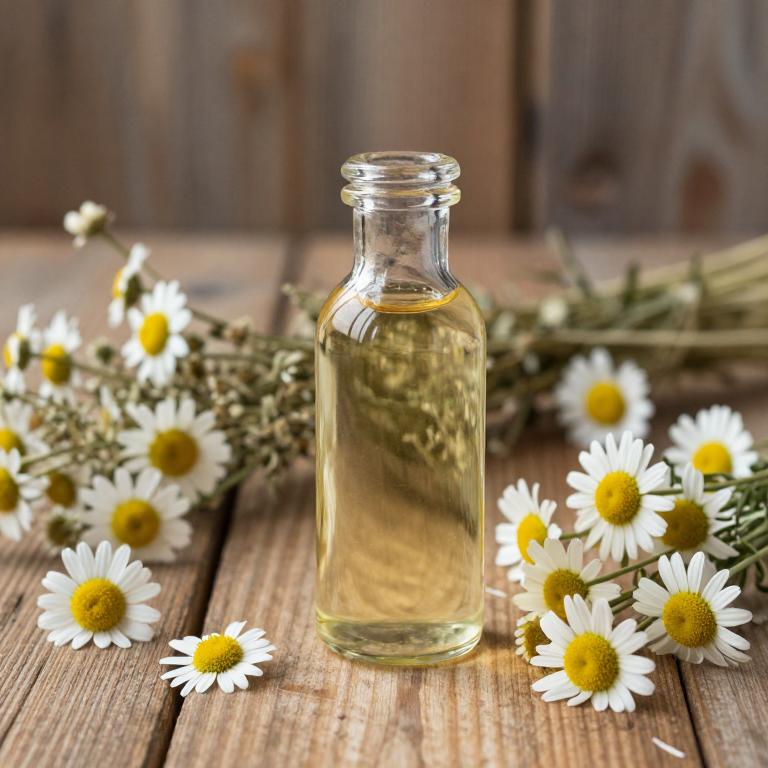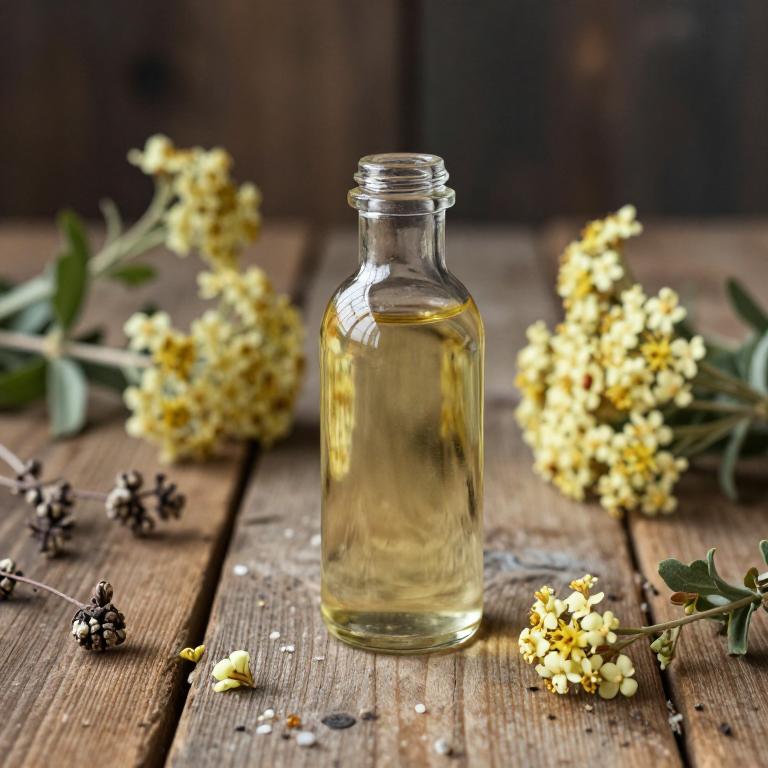10 Best Herbal Syrups For Gastritis

Herbal syrups have gained popularity as a natural remedy for managing gastritis due to their soothing and anti-inflammatory properties.
Common herbs used in these syrups include licorice root, ginger, turmeric, and chamomile, which are known for their ability to reduce stomach acid and protect the gastric lining. These syrups are often preferred over traditional pharmaceuticals because they offer a gentler approach with fewer side effects. They can be easily incorporated into daily routines and are available in various formulations tailored to specific symptoms.
However, it is important to consult a healthcare professional before using herbal syrups, especially for individuals with chronic gastritis or other underlying health conditions.
Table of Contents
- 1. Thistle (Silybum marianum)
- 2. Ginger (Zingiber officinale)
- 3. Turmeric (Curcuma longa)
- 4. Dog rose (Rosa canina)
- 5. Stinging nettle (Urtica dioica)
- 6. Cumin (Cuminum cyminum)
- 7. Chamomile (Matricaria chamomilla)
- 8. Licorice (Glycyrrhiza glabra)
- 9. Chaste tree (Vitex agnus-castus)
- 10. Marshmallow (Althaea officinalis)
1. Thistle (Silybum marianum)

Silybum marianum, commonly known as milk thistle, is a herbal remedy often used in the form of syrup to support liver health and potentially alleviate symptoms of gastritis.
The active compound, silymarin, is believed to have antioxidant and anti-inflammatory properties that may help protect the stomach lining from irritation and inflammation. While some studies suggest that milk thistle syrup could aid in reducing gastritis-related discomfort, more research is needed to confirm its efficacy in this specific condition. It is typically recommended as a complementary therapy alongside conventional treatments for gastritis, under the guidance of a healthcare professional.
As with any herbal supplement, it is important to consult a doctor before use, especially if you are taking other medications or have existing health conditions.
2. Ginger (Zingiber officinale)

Zingiber officinale, commonly known as ginger, has been traditionally used to soothe digestive ailments, including gastritis, due to its anti-inflammatory and carminative properties.
Ginger herbal syrups are often prepared by extracting the active compounds from fresh or dried ginger roots and combining them with honey or other natural sweeteners to create a palatable and effective remedy. These syrups may help reduce inflammation in the stomach lining, alleviate nausea, and promote the secretion of digestive enzymes, thereby supporting overall gastrointestinal health. However, individuals with severe gastritis should consult a healthcare provider before using ginger syrups, as they may interact with certain medications or exacerbate symptoms in some cases.
Despite its benefits, ginger should be consumed in moderation to avoid potential irritation of the stomach lining.
3. Turmeric (Curcuma longa)

Curcuma longa, commonly known as turmeric, contains curcumin, a compound with potent anti-inflammatory and antioxidant properties that may benefit individuals with gastritis.
Herbal syrups made from curcuma longa are often used to soothe the stomach lining and reduce inflammation in the gastrointestinal tract. These syrups can help alleviate symptoms such as indigestion, nausea, and abdominal pain associated with gastritis. However, it is important to consult a healthcare professional before using turmeric syrups, as they may interact with certain medications or conditions.
When properly prepared and consumed in moderation, curcuma longa herbal syrups can be a natural and supportive remedy for managing gastritis.
4. Dog rose (Rosa canina)

Rosa canina, commonly known as rosehip, has been traditionally used in herbal medicine for its rich content of antioxidants, vitamins, and anti-inflammatory properties.
Rosa canina herbal syrups are often recommended for individuals suffering from gastritis due to their potential to soothe the stomach lining and reduce inflammation. These syrups contain bioactive compounds such as vitamin C, polyphenols, and essential oils that may help in alleviating symptoms like stomach pain and indigestion. When used as a complementary therapy, Rosa canina syrup can support digestive health and promote overall wellness in gastritis patients.
However, it is important to consult a healthcare professional before using it, especially if taking other medications or suffering from underlying health conditions.
5. Stinging nettle (Urtica dioica)

Urtica dioica, commonly known as stinging nettle, has been traditionally used in herbal medicine for its anti-inflammatory and digestive benefits.
Urtica dioica herbal syrups are often prepared from the leaves and stems of the plant, which are rich in minerals, antioxidants, and bioactive compounds. These syrups may help alleviate symptoms of gastritis by reducing inflammation in the stomach lining and supporting digestive health. The soothing properties of stinging nettle can help ease irritation and promote healing in the gastrointestinal tract.
While generally considered safe, it is advisable to consult a healthcare professional before using urtica dioica syrups, especially for individuals with existing medical conditions or those taking other medications.
6. Cumin (Cuminum cyminum)

Cuminum cyminum, commonly known as cumin, has been traditionally used in herbal medicine for its potential benefits in treating gastritis due to its anti-inflammatory and carminative properties.
When prepared as a herbal syrup, cumin can help soothe the stomach lining and reduce symptoms such as bloating, indigestion, and nausea associated with gastritis. The essential oils in cumin, including compounds like limonene and cuminaldehyde, may help neutralize stomach acid and promote digestion. This natural remedy is often preferred by individuals seeking alternative treatments with fewer side effects compared to conventional medications.
However, it is advisable to consult a healthcare professional before using cumin syrup, especially if gastritis is severe or accompanied by other health conditions.
7. Chamomile (Matricaria chamomilla)

Matricaria chamomilla, commonly known as chamomile, is often used in herbal syrups to support digestive health, including the treatment of gastritis.
These syrups are valued for their anti-inflammatory and antispasmodic properties, which can help soothe the irritated stomach lining and reduce discomfort. Chamomile contains compounds like apigenin and bisabolol that may aid in reducing gastric acid secretion and promoting healing of the gastrointestinal tract. When taken as a herbal syrup, chamomile is typically diluted with water or taken with meals to minimize potential irritation.
However, individuals with allergies to plants in the daisy family should exercise caution before using chamomile-based remedies.
8. Licorice (Glycyrrhiza glabra)

Glycyrrhiza glabra, commonly known as licorice root, has been traditionally used in herbal medicine for its soothing effects on the gastrointestinal tract.
Licorice root syrup is often recommended for gastritis due to its anti-inflammatory and mucoprotective properties, which help reduce stomach irritation and protect the lining of the stomach. The active compounds in licorice, such as glycyrrhizin and flavonoids, contribute to its ability to neutralize stomach acid and promote healing. However, prolonged use of licorice syrup may lead to side effects like hypertension or potassium loss, so it should be used under the guidance of a healthcare professional.
Despite these considerations, licorice root syrup remains a popular natural remedy for managing symptoms of gastritis.
9. Chaste tree (Vitex agnus-castus)

Vitex agnus-castus, commonly known as chasteberry, has been traditionally used in herbal medicine to support digestive health.
While it is more widely recognized for its hormonal balancing properties, some studies suggest it may have mild anti-inflammatory effects that could benefit individuals with gastritis. Herbal syrups containing vitex agnus-castus are often formulated with other digestive herbs like ginger or licorice root to enhance their soothing properties. These syrups are typically used as complementary therapies rather than primary treatments for gastritis.
It is important to consult a healthcare provider before using vitex-based syrups, especially if you are on other medications or have existing health conditions.
10. Marshmallow (Althaea officinalis)

Althaea officinalis, commonly known as marshmallow root, has been traditionally used in herbal medicine for its soothing properties, particularly in the treatment of gastritis.
The mucilage present in the plant forms a protective layer over the stomach lining, helping to reduce irritation and inflammation caused by excess acid or harmful bacteria. Herbal syrups made from Althaea officinalis are often recommended for their ability to ease symptoms such as heartburn, indigestion, and stomach discomfort. These syrups are typically prepared by steeping the dried root in water or alcohol, resulting in a thick, viscous liquid that can be taken directly or mixed with water.
While generally considered safe, it is advisable to consult a healthcare professional before using Althaea officinalis syrups, especially for long-term or chronic gastritis management.